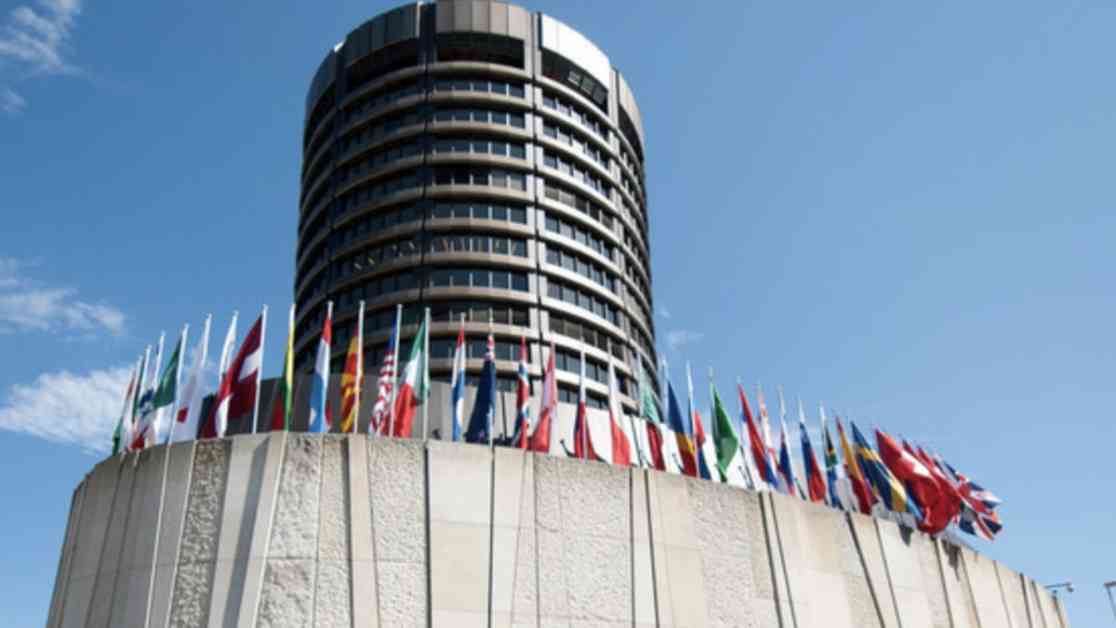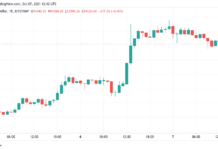More than 40 financial firms have recently joined the Bank for International Settlements (BIS) in a collaborative effort to explore the potential of tokenization in enhancing wholesale cross-border payments. This initiative, known as Project Agorá, aims to revolutionize the way financial transactions are conducted across borders by leveraging the power of blockchain technology.
Tokenization involves the digitization of real-world assets, allowing for greater efficiency and transparency in the transfer of value. By combining wholesale central bank money with tokenized commercial bank deposits, the participating firms in Project Agorá hope to streamline cross-border payment processes and overcome the various challenges that currently exist in the global financial system.
The BIS, often referred to as the central bank for central banks, launched Project Agorá in April, bringing together seven monetary authorities from countries such as the UK, Japan, South Korea, Mexico, Switzerland, the US, and Europe. The project builds on the BIS’s unified ledger concept and aims to create a public-private programmable core financial platform that seamlessly integrates tokenized assets for more efficient cross-border payments.
According to the BIS, the partnership between the central banks and financial institutions involved in Project Agorá will address several structural inefficiencies in the current payment system, particularly those related to cross-border transactions. These inefficiencies include differences in legal, regulatory, and technical requirements, as well as varying operating hours that can hinder the smooth flow of funds between countries.
In a statement released by the BIS, the organization expressed its commitment to exploring innovative solutions that can improve the efficiency and effectiveness of cross-border payments. By harnessing the potential of tokenization, the BIS and its partners hope to pave the way for a more seamless and secure global financial system that benefits both financial institutions and their customers.
Project Agorá: A Collaborative Effort
Project Agorá represents a significant milestone in the ongoing exploration of tokenization for cross-border payments. By bringing together more than 40 financial firms and central banks, the initiative seeks to leverage the expertise and resources of both the public and private sectors to drive innovation in the financial industry.
The participating firms were selected by the BIS following a public call for participation in May, highlighting the widespread interest in exploring the potential of tokenization for cross-border payments. As the project enters the design phase, the focus will be on developing practical solutions that can be implemented on a global scale to enhance the efficiency and security of cross-border transactions.
The collaboration between central banks and financial institutions in Project Agorá underscores the importance of working together to address the challenges facing the current payment system. By combining the strengths of both sectors, the project aims to create a more robust and resilient financial infrastructure that can support the growing demand for cross-border payments in the digital age.
The Potential of Tokenization in Cross-Border Payments
Tokenization has emerged as a promising technology for transforming the way financial transactions are conducted, particularly in the realm of cross-border payments. By digitizing real-world assets and leveraging blockchain technology, tokenization offers a range of benefits, including enhanced security, transparency, and efficiency in the transfer of value.
The integration of tokenized commercial bank deposits with wholesale central bank money represents a significant step forward in the evolution of cross-border payments. By creating a seamless and interoperable platform for conducting transactions, Project Agorá aims to reduce the complexity and cost associated with cross-border payments, ultimately benefiting businesses and consumers alike.
The potential applications of tokenization in cross-border payments are vast, with the technology offering new opportunities for streamlining processes, reducing settlement times, and enhancing regulatory compliance. As the financial industry continues to embrace digital innovation, the adoption of tokenization for cross-border payments is expected to play a crucial role in shaping the future of global finance.
Looking Ahead: The Future of Cross-Border Payments
As Project Agorá moves forward in its exploration of tokenization for cross-border payments, the financial industry is poised to undergo a significant transformation. By harnessing the power of blockchain technology and collaboration between central banks and financial institutions, the project has the potential to revolutionize the way cross-border transactions are conducted.
The global financial system is facing increasing pressure to adapt to the demands of a digital economy, with cross-border payments representing a key area of focus for innovation and improvement. By embracing tokenization and other emerging technologies, the industry can create a more efficient, secure, and inclusive payment ecosystem that benefits businesses, consumers, and economies around the world.
In conclusion, the collaboration between more than 40 financial firms and the BIS in exploring tokenization for cross-border payments represents a significant step forward in the evolution of the global financial system. By working together to overcome the challenges facing cross-border transactions, the industry is paving the way for a more efficient, transparent, and resilient payment infrastructure that meets the needs of a rapidly evolving digital economy.














